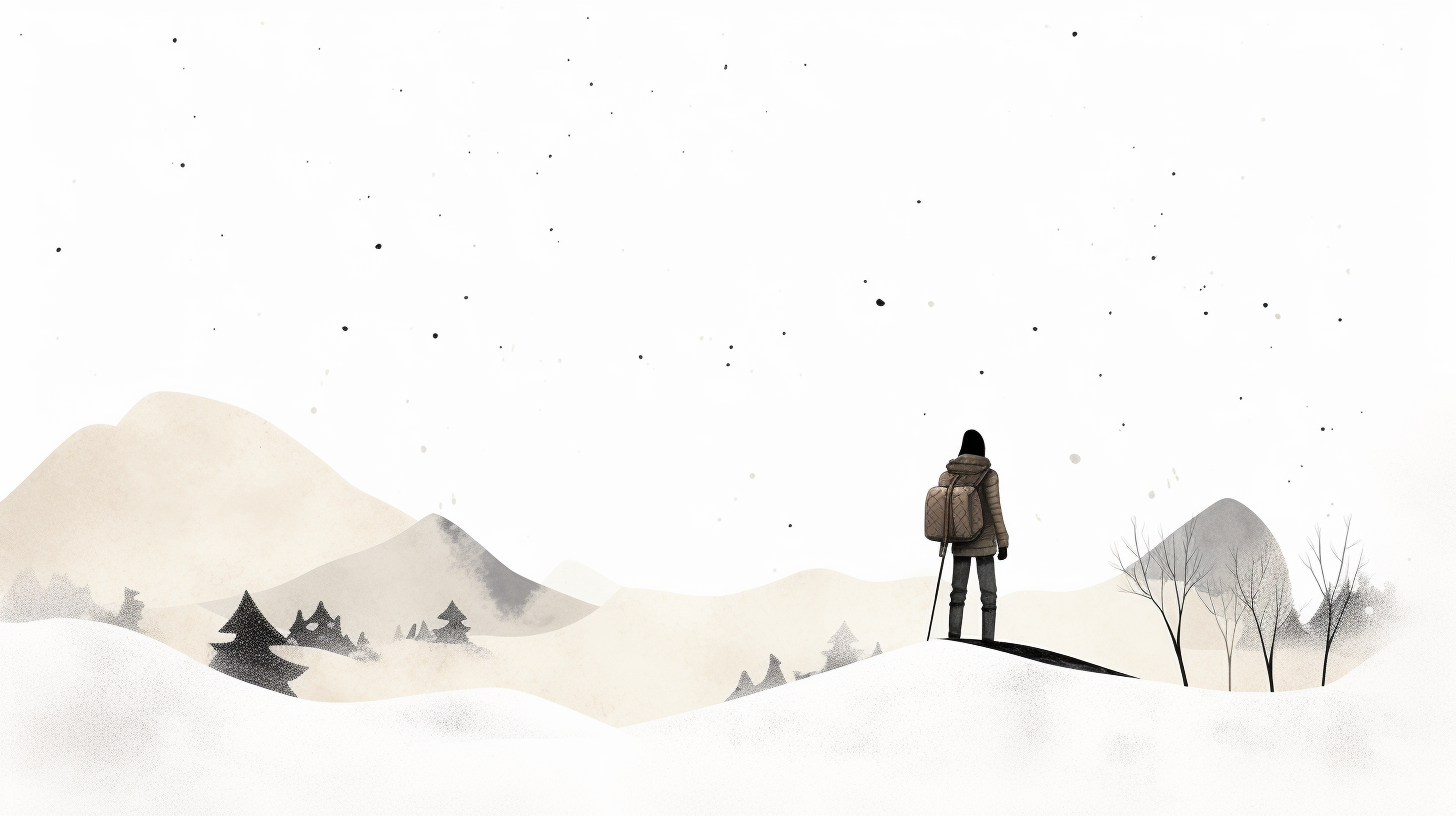I never shall want another Turkish lunch. The cooking apparatus was in the little lunch room, near the bazaar, and it was all open to the street. The cook was slovenly, and so was the table, and it had no cloth on it. The fellow took a mass of sausage-meat and coated it round a wire and laid it on a charcoal fire to cook. When it was done, he laid it aside and a dog walked sadly in and nipped it. He smelt it first, and probably recognized the remains of a friend. The cook took it away from him and laid it before us. Jack said, "I pass" - he plays euchre sometimes - and we all passed in turn. Then the cook baked a broad, flat, wheaten cake, greased it well with the sausage, and started towards us with it. It dropped in the dirt, and he picked it up and polished it on his breeches, and laid it before us. Jack said, "I pass". We all passed. He put some eggs in a frying pan, and stood pensively prying slabs of meat from between his teeth with a fork. Then he used the fork to turn the eggs with - and brought them along. Jack said " Pass again". All followed suit. We did not know what to do, and so we ordered a new ration of sausage. The cook got out his wire, apportioned a proper amount of sausage-meat, spat it on his hands and fell to work ! This time, with one accord, we all passed out. We paid and left. That is all I learned about Turkish lunches. A Turkish lunch is good, no doubt, but it has its little drawbacks.
Twain, Mark. Innocents abroad. Hartford: American Pub. Co., 1881.
Could we have trout? No. Chicken? No. Beefsteak ? No. What could we have ? Veal and eggs. The strangers from Gastein had eaten up everything else which the Bockstein inn possessed. Veal and eggs are the two staple delights of the German stomach; the veal steaming with fat and mustard, and the eggs horrible with butter and garlic. Ugh 1 All my life I shall remember the egg-salad which dear Marie added to our dinner yesterday, and of which I tasted, to appear civil, but was positively obliged to swallow hastily, like calomel, by help of great mouthfuls of beer. I thought I had tasted of bad things in Italy, but I give Germany the unquestioned palm.
Hunt Jackson, Helen. Bits of travel. Boston: J.R. Osgood, 1874.
In time we got to Fyaukmyaung, or Kyoukmoung, or anything you care to call it, but notorious a year or two back for being looted by the dacoits. We were a little tired of a rice diet, and Lowe in his innocence suggested a fish dinner. The idea was brilliant, but it nearly killed the three of us. We had eaten frogs' legs in France, and regarded with equanimity the consumption of spring puppies in China. Therefore a feed of Burmese nga-pee was appropriate.
When we had recovered from our illness we investigated how the food was prepared. First of all the fish were caught and laid in the sun for three days to dry. The fish being then dead, though moving, were pounded in plenty of salt. Then they were put into a jar, and when the mouth was opened people five miles away knew all about it. Nga-pee, I soon saw, was a delicacy that could only be appreciated by cultured palates. The taste is original; it is salt, rather like rancid butter flavoured with Limburger cheese, garlic, and paraffin oil. The odour is more interesting than the taste. It is more conspicuous.
Fraser, John Foster. Round the world on a wheel. London: Methuen & Co., 1899.
After some conversation on other matters, I inquired about the library, and asked permission to view its contents. The agoumenos declared his willingness to show me everything that the monastery contained. " But first," said he, " I wish to present you with something excellent for your breakfast ; and from the special good will that I bear towards so distinguished a guest I shall prepare it with my own hands, and will stay to see you eat it ; for it is really an admirable dish, and one not presented to all persons."
When dinner was served I went in very bravely and took my place on the Captain's left. I had a very strong determination to resist my impulses, but yet, in the bottom of my heart was a little faint feeling that I had found something even stronger than my will power.
Dinner began very pleasantly. The waiters moved about noiselessly, the band played an overture, Captain Albers, handsome and genial, took his place at the head, and the passengers who were seated at his table began dinner with a relish equaled only by enthusiastic wheelmen when roads are fine. I was the only one at the Captain's table who might be called an amateur sailor. I was bitterly conscious of this fact. So were the others.
I might as well confess it, while soup was being served, I was lost in painful thoughts and filled with a sickening fear. I felt that everything was just as pleasant as an unexpected gift on Christmas, and I endeavored to listen to the enthusiastic remarks about the music made by my companions, but my thoughts were on a topic that would not bear discussion.
I felt cold, I felt warm; I felt that I should not get hungry if I did not see food for seven days; in fact, I had a great, longing desire not to see it, nor to smell it, nor to eat of it, until I could reach land or a better understanding with myself.
Fish was served, and Captain Albers was in the midst of a good story when I felt I had more than I could endure.
"Excuse me," I whispered faintly, and then rushed, madly, blindly out. I was assisted to a secluded spot where a little reflection and a little unbridling of pent up emotion restored me to such a courageous state that I determined to take the Captain's advice and return to my unfinished dinner.
"The only way to conquer sea-sickness is by forcing one's self to eat," the Captain said, and I thought the remedy harmless enough to test.
They congratulated me on my return. I had a shamed feeling that I was going to misbehave again, but I tried to hide the fact from them. It came soon, and I disappeared at the same rate of speed as before.
Once again I returned. This time my nerves felt a little unsteady and my belief in my determination was weakening, Hardly had I seated myself when I caught an amused gleam of a steward's eye, which made me bury my face in my handkerchief and choke before I reached the limits of the dining hall.
The bravos with which they kindly greeted my third return to the table almost threatened to make me lose my bearings again. I was glad to know that dinner was just finished and I had the boldness to say that it was very good!
Bly, Nellie. Around the World in Seventy-Two Days. New York: The Pictorial Weeklies Company, 1890.
We went down to dinner, and only the fact of not having tasted food for many hours could have made me touch it in such a room. We were in a long apartment, with one table down the middle, with plates laid for one hundred people. Every seat was occupied, these seats being benches of somewhat uncouth workmanship. The floor had recently been washed, and emitted a damp fetid odour. At one side was a large fireplace, where, in spite of the heat of the day, sundry manipulations were going on, coming under the general name of cookery. At the end of the room was a long leaden trough or sink, where three greasy scullery-boys without shoes, were perpetually engaged in washing plates, which they wiped upon their aprons. The plates, however, were not washed, only superficially rinsed. There were four brigand-looking waiters with prodigious beards and moustachios.
There was no great variety at table. There were eight boiled legs of mutton, nearly raw; six antiquated fowls, whose legs were of the consistence of guitar-strings; baked pork with "onion fixings," the meat swimming in grease; and for vegetables, yams, corn-cobs, and squash. A cup of stewed tea, sweetened with molasses, stood by each plate, and no fermented liquor of any description was consumed by the company. There were no carving-knives, so each person hacked the joints with his own, and some of those present carved them dexterously with bowie-knives taken out of their belts. Neither were there salt-spoons, so everybody dipped his greasy knife into the little pewter pot containing salt. Dinner began, and after satisfying my own hunger with the least objectionable dish, namely "pork with onion fixings," I had leisure to look round me.
Bird, Isabella. The Englishwoman in America, 1856.
In nessuna
parte
di terra
mi posso
accasare
A ogni
nuovo
clima
che incontro
mi trovo
languente
che
una volta
già gli ero stato
assuefatto
E me ne stacco sempre
straniero
Nascendo
tornato da epoche troppo
vissute
Godere un solo
minuto di vita
iniziale
Cerco un paese
Innocente
Giuseppe Ungaretti, Girovago, pubblicato nell'opera L'Allegria, 1931
Può sembrare esagerato suggerire a qualcuno di prendere la strada sbagliata, o di perdersi, ma può essere anche un buon consiglio.

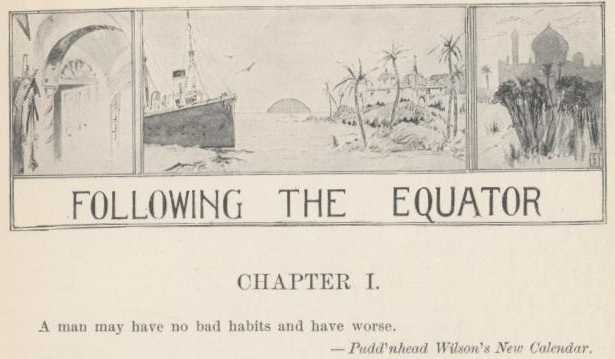
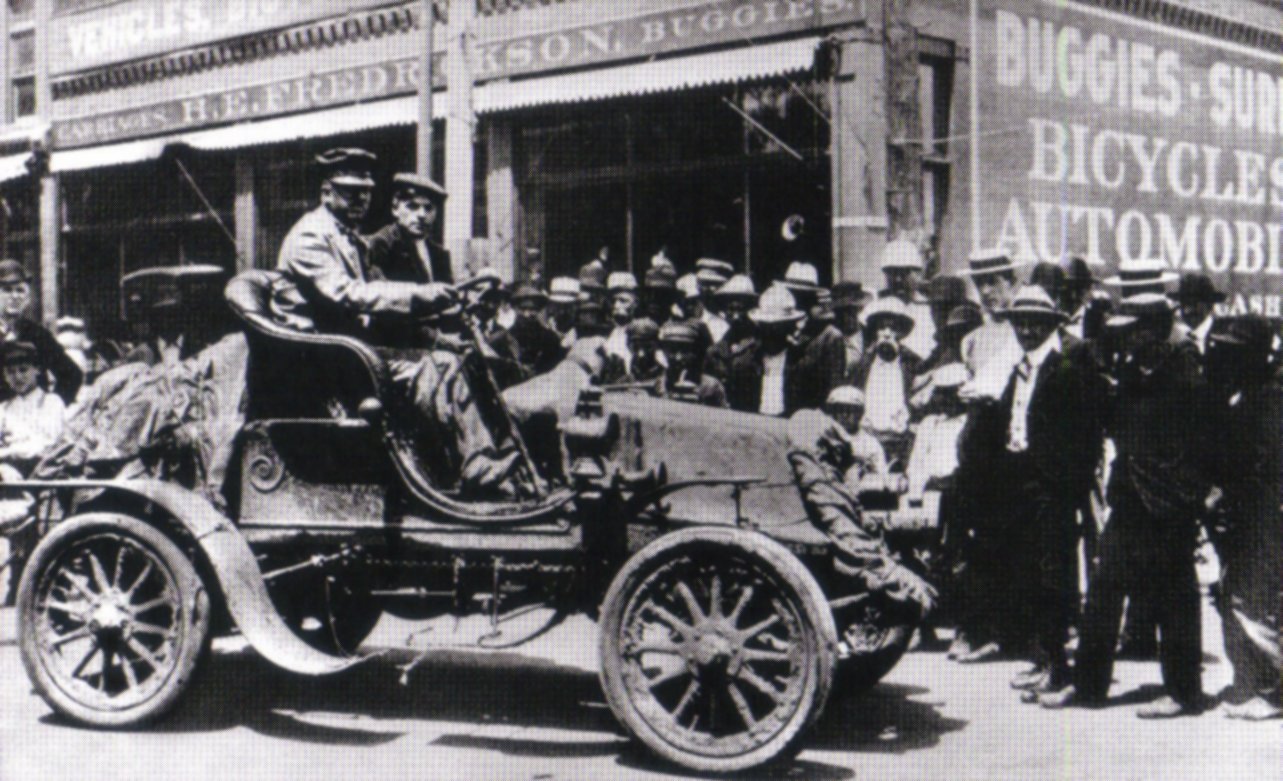
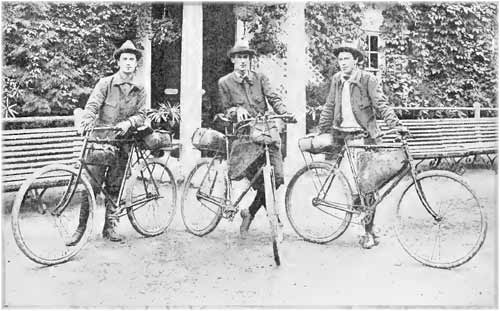
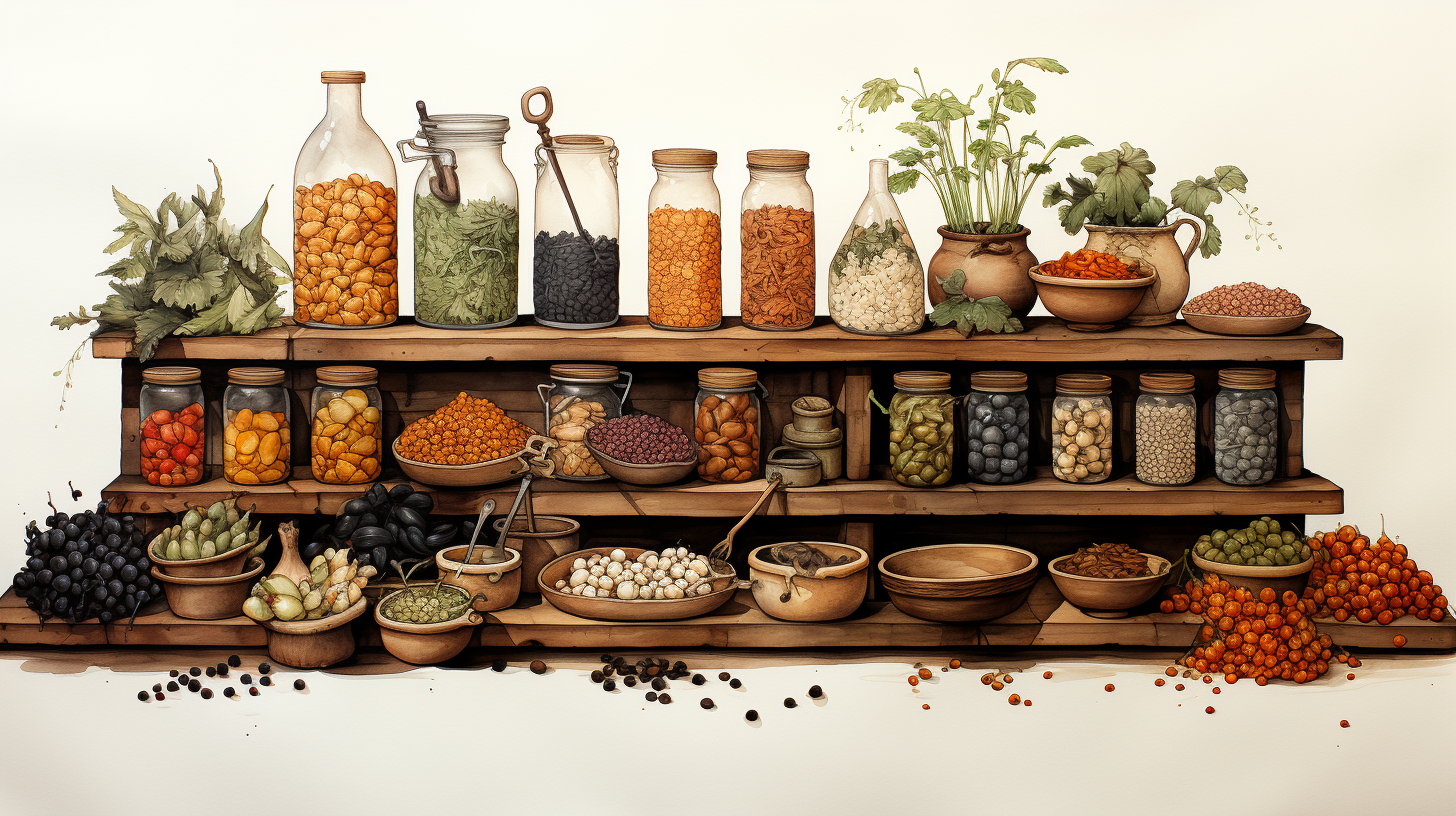
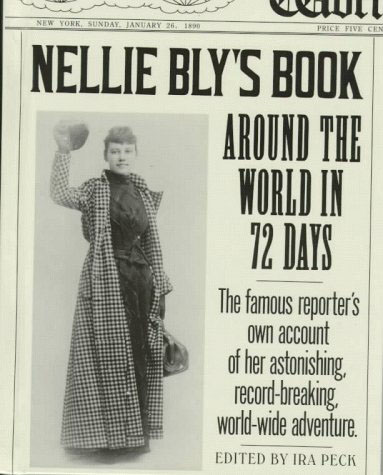

.jpg)
